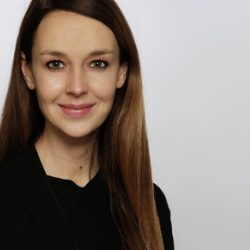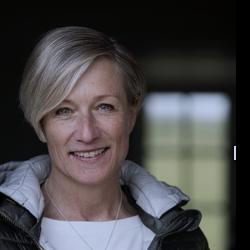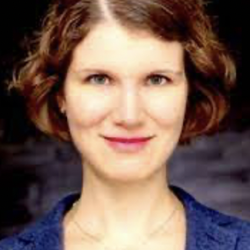STORYTELLING, HOSPITALITY, COMMUNITY
Migration, tourism and other patterns of mobility and immobility and their impact on relations between people and place.
Co-Convenors: Prof Jenny Mander and Dr William O’Reilly
Engaging the Arts and Humanities in migration-related research and the United Nations’ Sustainable Development Goals
A distinctive feature of the CGHM is the prominent position it gives to Arts and Humanities research and to arts-led thinking and practice to better understand the ever-changing and overlapping patterns of human movement and their social, political, economic, and ideological impact, past, present and future. Ongoing research at the CGHM led by Dr Jenny Mander (Faculty of MMLL) and Dr William O’Reilly (Faculty of History) combines literary, historical, and philosophical perspectives in tandem with arts practice to explore the impact of different types of human mobility and immobility: on experiences of time and place; on experiences of being stuck in migration and ‘in-betweenness’; on perceptions of community, borders and belonging. An important dimension of their research is to promote the importance of Arts and Humanities research in addressing twenty first century challenges through the framework of the United Nations’ Sustainable Development Goals and 2018 Global Compact for Migration.
Storytelling, Hospitality, Community
Their current research foregrounds the practice of ‘storytelling’, factual and fictional, in a variety of historical and cultural contexts. It considers ‘storytelling’ by and about migrants and other types of travellers through the lens of narrative theory, economics, politics, behavioural psychology, and marketing to illuminate the decision-making of those on the move, their local reception and strategies for successful adaptation if not ‘integration’. To examine the complexity surrounding the dynamics of social inclusion and exclusion in relation to storytelling, their research is informed by the practice and philosophy of hospitality – the most ancient code of international relations.
“to facilitate migrant participation in the receiving society by involving migrants, community members, diaspora organizations, migrant associations, and local authorities in intercultural dialogue, sharing of stories, mentorship programmes, and development of business ties that improve integration outcomes and foster mutual respect.”
Global Compact for Migration Objective 16: Empower migrants and societies to realise full inclusion and social cohesion
March 9, 2022: Dr Mander was joined by Dr Mezna Qato from the Margaret Anstee Centre ‘in conversation’ with Mohamidou Ould Salahi, author of the Guantanamo Diary, exploring his motivations as a writer and his experience of space and time during his fifteen years of detention and since his release, followed by a screening of The Mauritanian, based on Mohamidou’s story.
She has been invited to participate in the Raisina Dialogues in April 2022 and in the associated Asian Forum on Global Governance (AFGG) in New Delhi.
Dr William O’Reilly has been appointed lead consultant on an Arte T.V. four-part series, entitled: “Ils étaient des Millions” being filmed 2022-23.
He continues to collaborate with the German National Maritime Institute as Leibniz Professor.
Human mobility and immobility through the lens of sustainable tourism and environmental criticism
An emerging theme in this research strand is to understand the historical entanglements of migration with other patterns of mobility and immobility relating to European colonial and commercial expansion and settlement and its ongoing social, political, and environmental legacies, through the lens of tourism.
- October 26 saw a lively seminar on the theme of “Migration, tourism and sustainability, past and present, above and below” with a presentation of Professor Liburd, University of Southern Denmark, alongside doctoral students from MMLL Ian Boyd and Olivia Colvill.
- On March 3 2022 the strand hosted a Grad Café on the theme of “Migration and Maritime Communities” with a presentation from Dr Katharina Bothe, alongside doctoral students Tom Zago and John Freeman from the Faculty of History.
- On April 1 2022 Dr Mander and Dr O’Reilly gave papers at an international online conference co-hosted by the Centre with the German Maritime Museum – Leibniz Institute for Maritime History on “Climate, Conflict and other Challenges: Discussing Global Drivers for Migration” organised by Dr Katharine Bothe.
Colonial history and the decolonizing process: from voice to print to pixels
Influenced by recent methodologies of Verflechtungsgeschichte or Histoire Croisée (entangled history), research in this strand adopts a longer view on the interactions between different cultures, between traditional and academic knowledge and knowledge production and the impact of changing communication technologies. Foregrounding the “darker side of the Renaissance” (Mignolo), we are interested, historically and in the present, in how the migration of ideas intersects with multilingualism, the structures of power and the formation of centres of administration and learning, encouraging the decolonization of the archive and of academic publishing.
We are delighted to include in our research network Dr Doreen Nchang, recently recipient of a British Academy’s Exceptional Promise Global Talent award. Dr Nchang has been the British Council Decolonizing Digital Fellow at IASH, University of Edinburgh and has held an African Peacebuilding Network Fellowship researching the emerging narratives and linguistic options for managing Anglophone- Francophone crises in Cameroon. exchange and peace building. She is excited to share her research on decolonizing knowledge production and dissemination with particular reference to the Francophone Global South and to work with us on storytelling.
Exploring collaborative practice and fostering cross-sector partnerships
A distinctive feature of this strand is its interdisciplinary and cross-sectorial approach to understanding the impact of human movement on relations between people and place, working with artists and musicians, members of the local community and other stakeholders. Through reflective practice the research network aims to experiment and develop models for the evaluation of different models of collaboration and partnership involving researchers in the arts and humanities.
This year Dr Mander and Dr O’Reilly have been developing research under this strand with a growing network of local and international scholars including:
- Professor Dr Dr Janne Liburd, University of Southern Denmark, University of Southern Denmark, Chair of the UNESCO World Heritage Wadden Sea National Park, who visited the Centre in October 2021 to build interdisciplinary research collaboration and is returning in May 2022, sponsored by the Carlsberg Foundation., who visited the Centre in October 2021 to build interdisciplinary research connections and is returning in May, sponsored by the Carlsberg Foundation.
- Dr Katharina Bothe from the German Martime Museum – Leibniz Institute for Maritime History, Visiting Scholar in the Faculty of MMLL and Visiting Member of High Table at Newnham College, sponsored by the DAAD.
- Dr Kristina f’Felt, University of Montpellier, sponsored by ISTHEA ( Institut Supérieur du Tourisme, de l’Hôtellerie et de l’Alimentation de l’Université de Toulouse
- Dr Mona Garloff, University of Innsbruck, will join us in May 2022, sponsored by BritInn (BritInn - Academic Network Britain-Innsbruck) scholars scheme.
Other Cambridge academics closely involved in the research of this strand include:
- Dr Eolene Boyd-Macmillan, Senior Research Associate, Co-Director of IC (Integrative Complexity) Research, Department of Psychiatry, Cambridge Public Health, University of Cambridge, who the insights of a social psychologist working within the framework of public mental health promotion to develop and test community-based interventions that explore lived experiences of societal structures and systems and increase self-regulation, resilience and social cohesion and reduce destructive social polarisation and inequalities.
- Dr Caroline Lanskey, Institute of Criminology. Dr Lanskey's research interests include youth justice, education and the arts in criminal justice, citizenship and migration, youth voice and participation. She is currently leading the Families and Imprisonment Research (FAIR) Study and is co-PI on a research study of youth justice and rurality.
Dr Katharina Bothe is Deputy Head of Programme and postdoctoral research fellow at the German Maritime Museum – Leibniz Institute for Maritime History. She is currently pursuing her Habilitation at the University of Hamburg and is a Visiting Scholar in MMLL, sponsored by the DAAD. Her research focusses on migration, mobility and diversity, as well as sustainable work practices in the maritime economy of the twentieth and twenty- first centuries. Press article: https://www.dsm.museum/en/press-area/scientist-from-the-german-maritime-museum-pursues-her-research-at-university-of-cambridge-uk
Professor Janne Liburd is Director of the Centre for Tourism, Innovation and Culture at the University of Southern Denmark. She is a cultural anthropologist. Her research interests include sustainable tourism, national parks, innovation, collaboration, and the nature of the university. By two ministerial appointments, Janne Liburd is Chair of the UNESCO World Heritage Wadden Sea National Park (2015-2022). She served on the National Tourism Forum, charged with developing the first strategy for tourism in Denmark (2015-2018).
Thanks to Professor Liburd, the Faculty of MMLL has become a partner in the Erasmus Mundus European Master in Tourism Management connecting interested doctoral students across several continents and enabling the MMLL to receive up to two visiting students as visiting students in the second year of their master’s programme.
Recent publications relating to this strand:
- 2021 Jenny Mander, ‘The City, War and Modern Civilization from the Perspective of Raynal’s Histoire des deux Indes’ in Histories of Trade as Histories of Civilization, eds. Antonella Alimento and Aris Della Fontana, Palgrave Macmillan, pp. 277-308
- 2021 Jenny Mander , ‘The Memoir Novel’ in The Cambridge History of the Novel in French, ed. Adam Watt, Cambridge: Cambridge University Press, pp. 187-203.
- 2020 Jenny Mander, Guillaume-Thomas Raynal, Histoire philosophique et politique des établissements et du commerce des Européens dans les deux Indes, édition critique, dir. Anthony Strugnell, Ferney-Voltaire, Centre International d’étude du XVIIIe siècle, Tome III, sous la direction de Cecil Courtney, Livres X à XIV, textes établis et présentés par Jenny Mander (livre X), Ann Thompson (livre XI), Cecil Courtney & Reinier Salverda (livre XII), Muriel Brot (livre XIII) et Peter Jimack (livre XIV)
- 2019 Jenny Mander, Transnational Perspectives on the Conquest and Colonization of Latin America, New York and London: Routledge Studies in the History of the Americas, ed. Jenny Mander, David Midgley and Christine Beaule, xvi + 312 pp.
- 2019 Jenny Mander, ‘Colonialism and Slavery’ in Cambridge History of French Thought, ed. Michael Moriarty and Jeremy Jennings, Cambridge: Cambridge University Press, pp. 271-278
- 2021 William O’Reilly, ’Trade in Strangers: Curiosity, Travel and the Recruitment of Migrants’, Litteraria Pragensia, 31 (61), ‘Migration & Intercultural Communication’, July 2021, pp. 8-26.
- 2021 William O’Reilly, ‘Global, Regional and Small Spaces in eighteenth-century Habsburg Europe’, Geschichte und Region/Storia e regione, 30 (1), 2021, pp. 201-211.
- 2021 William O’Reilly, ’The Risky Business of Migration. Interdisciplinary Approaches to Decision Making and Risk in the Study of Migration’, History-Theory-Criticism, 1, 2021, pp. 11-36.
- 2020 William O’Reilly & James Boyd, ‘Prospect Theory, Cascade Effects, and Migration: Analyzing Emigration “Fevers” in the Historical Atlantic World’, The Journal of Interdisciplinary History, 11 (1), Summer 2020, pp. 39-64.




